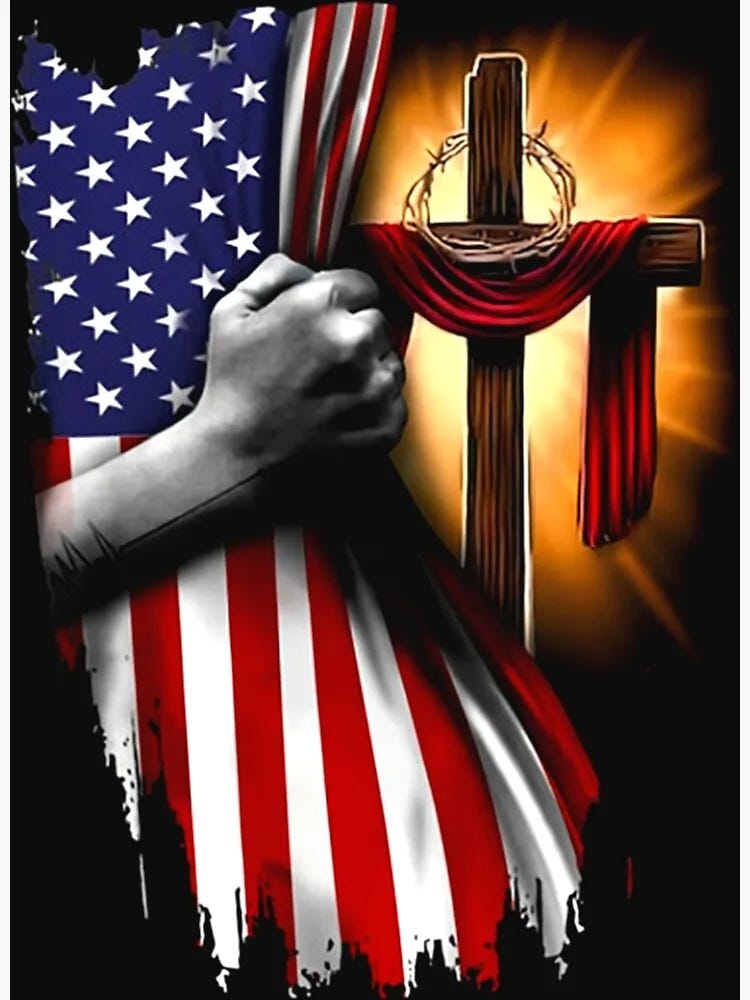Those people pouring over our border are less evolved than we are. They are naturally less intelligent. They have criminal natures. They are incapable of respecting the rule of law and order.
I started writing this post on Friday (July 12) and got stuck after pasting the above quote. So I decided to leave it for awhile.
And then Mr Trump was shot.
Several hours after the incident the talking heads began asking the questions many of us are asking: What kind of nation are we becoming? What kind of nation do we want to be?
In many ways over these last few decades, we’ve answered that question in a word: Violent. From cars driving into peaceful protests to shooting politicians in DC while they played softball to threatening the lives of poll workers to storming the US Capital to the rise of anti-semitism to the attempted assassination of Mr Trump, political violence seems to be the language of politics.
We also see it our violent rhetoric. Here in Arizona a “Christian” politician joked about lynching a fellow politician. Vile stereotypes are leveled at immigrants. Threats of “taking back our country” fill the airwaves. The demonizing of the other side politically becomes fodder for rallying the base.
And sadly, much of this is done in the name of Jesus. Or at least in the name of Christianity.
Which leads back to the question: What kind of person are my politics making me?
When I write, “politics,” I’m using the word as we use it today, meaning partisan politics.
The Jesus movement, however, starting with Jesus himself, is a fiercely political (not partisan) movement in that it’s a movement meant to impact real life, real systems, real hurts and needs, not just the spiritual. Jesus came to feed hungry people—that’s political. Jesus came to set the captives free—that’s political. Jesus came to liberate the oppressed—that’s political. The God of the Bible, the God of Jesus, always acts politically in the world, bringing grace, reconciliation, and freedom to real people in real situations.
What we generally mean by politics today, however, is partisanship. It’s our allegiance to one party or the other. And the enmeshment of political partisanship with Christianity has in many ways detracted us from the “politics” of Jesus.
But back to the question: What kind of person are my politics making me?
Is my political ideology, is my commitment to my political party and its platform making me:
More outraged or more compassionate?
More judgmental or more loving?
More narrow in my thinking or more curious?
More condemning or more kind?
Do I find myself shrinking the scope of God’s grace and therefore the scope of who I treat with respect because of my political beliefs, or am I more motivated to see all people as created in the image of God?
Do my politics reflect the culture of God’s kingdom:
Therefore, as God’s chosen ones, holy and beloved, clothe yourselves with compassion, kindness, humility, meekness, and patience. Bear with one another and, if anyone has a complaint against another, forgive each other; just as the Lord has forgiven you, so you also must forgive. Above all, clothe yourselves with love, which binds everything together in perfect harmony. And let the peace of Christ rule in your hearts, to which indeed you were called in one body. And be thankful. (Colossians 3:12-14)
Does my commitment to my political party and its platform reflect the passion of God?
Is not this the fast that I choose:
to loose the bonds of injustice,
to undo the straps of the yoke,
to let the oppressed go free,
and to break every yoke?
Is it not to share your bread with the hungry
and bring the homeless poor into your house;
when you see the naked, to cover them
and not to hide yourself from your own kin? (Isaiah 58:6-7)
With what shall I come before the Lord
and bow myself before God on high?
Shall I come before him with burnt offerings,
with calves a year old?
Will the Lord be pleased with thousands of rams,
with ten thousands of rivers of oil?
Shall I give my firstborn for my transgression,
the fruit of my body for the sin of my soul?”
He has told you, O mortal, what is good,
and what does the Lord require of you
but to do justice and to love kindness
and to walk humbly with your God? (Micah 6:6-8)
Does the platform of my political party shape my understanding of the Gospel or does the Gospel shape my understanding of politics?
Do my politics move me to love my neighbor?
Check out the new Deep Grace Diving Facebook page. You’ll be able to post questions and interact with other seekers of grace.





